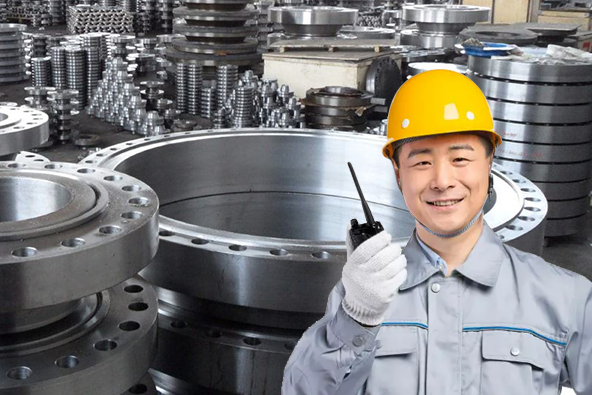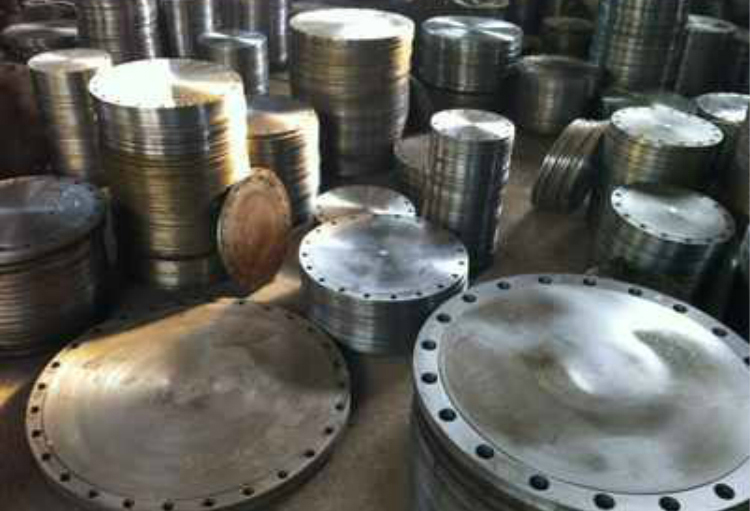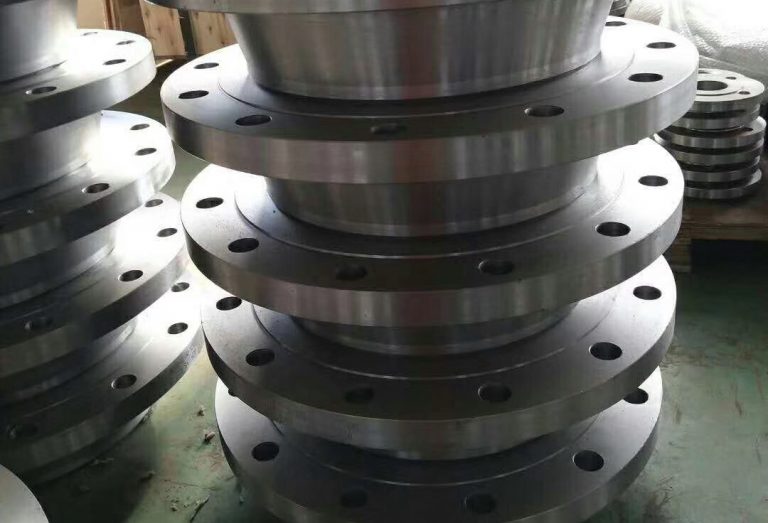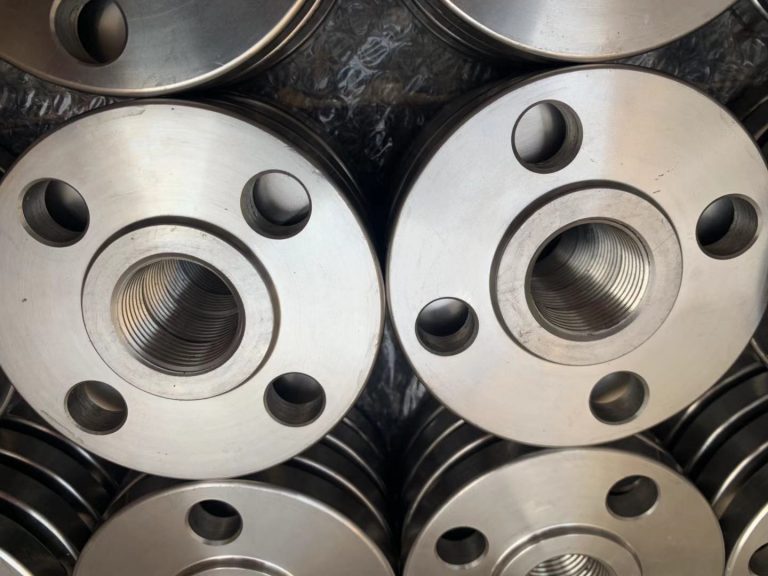I. Introduction
In the intricate web of the chemical industry, where precision and reliability are paramount, the selection of flanges plays a pivotal role in ensuring the seamless functioning of pipelines. Flanges act as the unsung heroes, connecting and supporting the vital arteries of chemical processing. The right choice can mitigate risks associated with corrosion, leakage, and system failures, ensuring operational efficiency and safety.
Amidst the diverse landscape of solution providers, YANHAO stands out as a beacon of reliability in the realm of flange solutions for the chemical industry. With a commitment to excellence and a track record of delivering precision-engineered components, YANHAO has emerged as a trusted partner for businesses seeking to fortify their chemical pipelines. Our expertise goes beyond products; we provide tailored solutions designed to meet the unique challenges posed by chemical environments, ensuring longevity and performance. As we delve into the intricacies of selecting flanges, trust YANHAO to be your guide in navigating the complexities of the chemical pipeline landscape.

II. Understanding the Role of Flanges in Chemical Pipelines
A. Importance of Flanges in Ensuring Pipeline Integrity
Flanges serve as the linchpin in maintaining the structural and functional integrity of chemical pipelines. Acting as connectors, they bear the responsibility of withstanding extreme pressures, temperature differentials, and corrosive elements present in chemical processes. The correct choice of flanges can prevent leaks, ensure a tight seal, and facilitate the smooth flow of chemicals, thereby safeguarding both operational efficiency and the safety of the entire system.
B. Key Considerations for Choosing Flanges in Chemical Applications
- Chemical Compatibility: The diversity of chemicals in the industry necessitates a meticulous evaluation of material compatibility. YANHAO’s flanges are crafted from corrosion-resistant materials, tailored to withstand the chemical intricacies of diverse applications.
- Pressure and Temperature Requirements: Flanges must endure varying pressure and temperature conditions. YANHAO’s solutions are engineered to meet stringent industry standards, ensuring reliable performance across a spectrum of operational parameters.
- Sealing Mechanisms: Achieving a secure and durable seal is paramount. YANHAO’s flanges incorporate advanced sealing mechanisms, minimizing the risk of leakage and enhancing overall system reliability.
- Adherence to Standards: Conformance to industry standards, such as ANSI and ASME, is non-negotiable. YANHAO takes pride in its commitment to meeting and exceeding these benchmarks, assuring clients of the highest quality and reliability.
- Customization for Specific Needs: Chemical processes often demand tailored solutions. YANHAO’s expertise lies not only in offering a range of standardized flanges but also in providing customizable options to meet the unique requirements of individual applications.
In this section, we will delve deeper into these considerations, shedding light on the nuances of flange selection for optimal performance and longevity in chemical pipelines. YANHAO’s dedication to precision and reliability ensures that each flange serves as a robust link in the intricate chain of chemical processing.
III. Types of Flanges Suitable for the Chemical Industry
A. Weld Neck Flanges
Weld Neck Flanges are renowned for their high strength and durability, making them suitable for critical applications in the chemical industry. YANHAO offers a range of weld neck flanges designed to provide a robust and leak-resistant connection, ensuring the integrity of chemical pipelines under demanding conditions.
B. Slip-On Flanges
Slip-on flanges are valued for their ease of installation and cost-effectiveness. YANHAO’s Slip-On Flanges combine efficiency with reliability, offering a secure fit that enhances the overall performance of chemical pipelines while providing a solution that aligns with budget considerations.
C. Blind Flanges
In situations requiring the closure of an endpoint, Blind Flanges are indispensable. YANHAO’s Blind Flanges provide a dependable seal, preventing the escape of chemicals and maintaining system integrity. Our blind flanges are designed with precision, ensuring a tight fit for optimal safety in chemical applications.
D. Socket Weld Flanges
Socket Weld Flanges are known for their simplicity and suitability for smaller pipe diameters. YANHAO’s Socket Weld Flanges not only facilitate easy assembly but also guarantee a secure connection, reducing the risk of leaks in chemical pipelines.
E. Mention YANHAO’s Expertise in Providing a Variety of Flange Solutions
YANHAO takes pride in being a versatile solution provider, offering a comprehensive suite of flanges catering to the unique needs of the chemical industry. Our expertise goes beyond the conventional types mentioned above, encompassing specialty flanges crafted to address specific challenges posed by different chemical processes. From customized alloys to innovative designs, YANHAO ensures that each flange meets the highest standards of quality and reliability. As we explore the diverse landscape of flange options, trust YANHAO to deliver solutions that align precisely with the demands of your chemical applications.
IV. Material Selection for Chemical Resistance
A. Corrosion-Resistant Materials for Chemical Environments
In the challenging milieu of chemical processing, the corrosive nature of substances flowing through pipelines necessitates a meticulous approach to material selection. Flanges, as critical components in this environment, must be crafted from materials that withstand the corrosive effects of chemicals over time. In this section, we will delve into the types of corrosion-resistant materials crucial for ensuring the longevity and reliability of flanges in chemical applications.
B. YANHAO’s Commitment to Providing High-Quality, Corrosion-Resistant Flanges
YANHAO recognizes that the cornerstone of effective flange performance in the chemical industry lies in the quality and resilience of the materials used. Our commitment to excellence is reflected in the careful selection of corrosion-resistant alloys, ensuring that our flanges endure the harshest chemical environments.
- Stainless Steel Alloys: YANHAO’s stainless steel flanges are tailored to resist corrosion from a wide range of chemicals, offering longevity and reliability in diverse chemical processing applications.
- Alloy Steels: Our alloy steel flanges incorporate alloy steels known for their exceptional corrosion resistance properties, providing robust solutions for applications where standard materials may fall short.
- Specialized Coatings: YANHAO employs advanced coating technologies to enhance the corrosion resistance of our flanges. These coatings act as an additional layer of protection, safeguarding against the corrosive effects of chemicals and promoting extended service life.
As we explore the intricacies of material selection for chemical resistance, rest assured that YANHAO’s flanges are synonymous with durability and dependability. Our commitment to providing high-quality, corrosion-resistant solutions positions us as a trusted partner in fortifying your chemical pipelines against the challenges posed by corrosive substances.
V. Standards and Certifications
A. Importance of Adhering to Industry Standards (e.g., ANSI, ASME)
The chemical industry operates within a framework of stringent regulations and standards to ensure the safety, reliability, and performance of its processes. Adhering to industry standards, such as those set by ANSI (American National Standards Institute) and ASME (American Society of Mechanical Engineers), is imperative for the proper functioning of chemical pipelines. In this section, we’ll explore the significance of these standards and their role in guaranteeing the integrity of flanges in chemical applications.
B. YANHAO’s Compliance with International Standards and Certifications
- Adherence to ANSI and ASME Standards: YANHAO places paramount importance on aligning with globally recognized standards, including ANSI and ASME. Our flanges are meticulously manufactured to meet or exceed these standards, ensuring that they seamlessly integrate into diverse chemical systems while maintaining optimal safety and reliability.
- ISO Certification: YANHAO proudly holds ISO certification, underscoring our commitment to quality management systems. This certification signifies that our processes, including design, production, and testing, meet the rigorous international standards set by the International Organization for Standardization (ISO).
- Third-Party Verification: To reinforce our dedication to excellence, YANHAO subjects its flange products to third-party verification processes. This external validation provides an additional layer of assurance to our clients, substantiating the quality and compliance of our flange solutions.
By choosing YANHAO, you are not only selecting flanges crafted with precision but also partnering with a company that places a premium on meeting and exceeding industry standards. Our commitment to international certifications and third-party verification underscores our dedication to delivering flanges that not only meet your expectations but surpass them in terms of reliability, safety, and adherence to global standards.
VI. Factors Influencing Flange Selection
A. Pressure and Temperature Considerations
In the complex landscape of the chemical industry, where pipelines operate under a spectrum of conditions, the consideration of pressure and temperature is paramount. Flanges must be selected based on their ability to withstand the varying demands imposed by different processes. In this segment, we’ll delve into the nuanced relationship between pressure, temperature, and flange selection, emphasizing the critical role that YANHAO’s solutions play in ensuring resilience under diverse operational parameters.
B. Specific Requirements for Chemical Compatibility
Chemical compatibility stands as a cornerstone in the selection of flanges for chemical pipelines. Different substances present distinct challenges, and flanges must be chosen with a keen understanding of the chemical intricacies involved. YANHAO acknowledges the diversity of chemicals used in industrial processes and tailors its flange solutions to address the specific challenges posed by corrosive agents, ensuring compatibility and longevity in the face of chemical interactions.
C. YANHAO’s Tailored Solutions for Diverse Pipeline Needs
- Customized Material Selection: YANHAO recognizes that no two chemical processes are alike. Our flanges are crafted with a deep understanding of the unique requirements of different industries. Whether it’s high-pressure applications or exposure to corrosive chemicals, YANHAO offers a range of materials and alloys, allowing for a tailored approach to meet specific pipeline needs.
- Precision Engineering: YANHAO’s commitment to precision engineering ensures that our flanges align seamlessly with the intricacies of diverse chemical systems. From intricate design considerations to the selection of materials, each aspect is finely tuned to deliver optimal performance in line with your pipeline requirements.
- Collaborative Consultation: At YANHAO, we understand that effective flange selection is a collaborative process. Our team of experts collaborates closely with clients to comprehend their unique pipeline needs, offering personalized recommendations and solutions that go beyond standardized offerings.
As we explore the multifaceted factors influencing flange selection, rest assured that YANHAO’s commitment to providing tailored solutions positions us as a reliable partner in navigating the complexities of diverse pipeline requirements within the chemical industry.
VII. Installation and Maintenance Best Practices
A. Proper Installation Procedures for Flanges in Chemical Pipelines
The installation of flanges is a critical phase in ensuring the longevity and efficiency of chemical pipelines. Improper installation can lead to leaks, inefficiencies, and safety hazards. In this section, we’ll delve into the best practices for installing flanges in chemical pipelines, emphasizing the meticulous procedures that contribute to their proper functionality.
- Flange Alignment and Facing: YANHAO emphasizes the importance of precise alignment during installation to ensure a tight fit. Proper facing of flange surfaces is crucial, minimizing the risk of leaks and promoting optimal sealing.
- Bolt Tightening Procedures: The correct torque on bolts is essential for maintaining the integrity of the flanged joint. YANHAO provides guidelines for bolt tightening procedures, considering factors such as gasket material, flange size, and pressure requirements.
- Gasket Selection: YANHAO offers guidance on selecting the appropriate gasket material, considering factors like temperature, pressure, and chemical compatibility. Proper gasket selection is vital for creating a reliable and durable seal.
B. YANHAO’s Support in Ensuring Long-Term Reliability and Performance
- Installation Training and Resources: YANHAO goes beyond delivering quality flanges; we provide comprehensive resources and training to ensure that our clients’ installation teams are well-versed in the correct procedures. This commitment to knowledge transfer supports proper installation practices.
- Post-Installation Inspection: YANHAO recommends post-installation inspections to verify the integrity of the flanged joints. This proactive approach helps identify and address any issues early on, preventing potential long-term complications.
- Maintenance Guidelines: YANHAO offers clear maintenance guidelines to support the ongoing reliability of our flange solutions. Regular inspections, lubrication, and periodic replacements, if needed, are key components of our maintenance recommendations.
By adhering to these installation and maintenance best practices, YANHAO ensures that our flanges not only meet the highest standards during initial installation but continue to perform reliably over the long term. Our commitment extends beyond the point of sale, with ongoing support to safeguard the integrity and performance of your chemical pipelines.
VIII. Case Study: Optimizing Chemical Processing Efficiency
Background:
A major chemical processing plant sought to enhance its operational efficiency and address persistent challenges related to corrosion and leakage in their existing pipeline system. The plant management recognized the need for a reliable solution to upgrade their flange infrastructure.
Challenges:
- Corrosive Environment: The plant processed corrosive chemicals, leading to frequent corrosion-related issues in the existing flanges.
- Diverse Chemicals: The facility dealt with a wide range of chemicals, each requiring specific material compatibility in their pipeline systems.
- Operational Disruptions: Frequent leaks and maintenance downtime were affecting the overall operational efficiency of the plant.
YANHAO’s Solution:
- Customized Material Selection: YANHAO’s engineering team conducted a thorough analysis of the plant’s chemical processes. Custom flanges were designed using high-quality, corrosion-resistant alloys tailored to the specific chemicals being transported.
- Innovative Coating Technology: To combat corrosion, YANHAO implemented advanced coating technologies on the flange surfaces, providing an extra layer of protection against corrosive agents.
- Seal Integrity: YANHAO’s flange design incorporated advanced sealing mechanisms to ensure a tight and durable seal, minimizing the risk of leaks and enhancing overall system reliability.
Results:
- Dramatic Reduction in Downtime: The implementation of YANHAO’s customized flanges significantly reduced the frequency of leaks and maintenance-related downtime, leading to a notable increase in overall operational efficiency.
- Extended Service Life: The corrosion-resistant materials and innovative coatings employed in YANHAO’s flanges contributed to a prolonged service life, minimizing the need for frequent replacements.
- Enhanced Safety Standards: The upgraded flange infrastructure not only improved operational efficiency but also elevated safety standards by preventing potentially hazardous leaks in the chemical processing plant.
YANHAO extends a sincere invitation for collaboration. Our commitment to expertise, innovation, and client-centric solutions positions us as your reliable partner in navigating the complexities of the chemical pipeline landscape. Whether you face challenges related to corrosion, pressure, or unique chemical compatibility requirements, YANHAO is poised to provide not just flanges but comprehensive, tailored solutions crafted to elevate the performance and safety of your chemical processes.
Consult with us, and let YANHAO be the catalyst for enhancing the integrity, reliability, and efficiency of your chemical pipelines. Together, we can build a resilient infrastructure that stands the test of time in the dynamic and challenging environment of the chemical industry.
Lewis Liu
Hello, I am Lewis Liu, a professional sales engineer with over ten years of experience in the flange fittings industry. I am highly knowledgeable in flange selection, installation, and maintenance. I am passionate about providing customers with the best solutions to ensure their pipeline systems run smoothly, safely, and reliably.
If you have any questions or concerns regarding flange fittings for your pipelines, whether it’s about selection, material choice, specification requirements, or any other aspect, please feel free to contact me at any time. I am committed to offering professional advice and assistance to help you make informed decisions and meet your needs.





